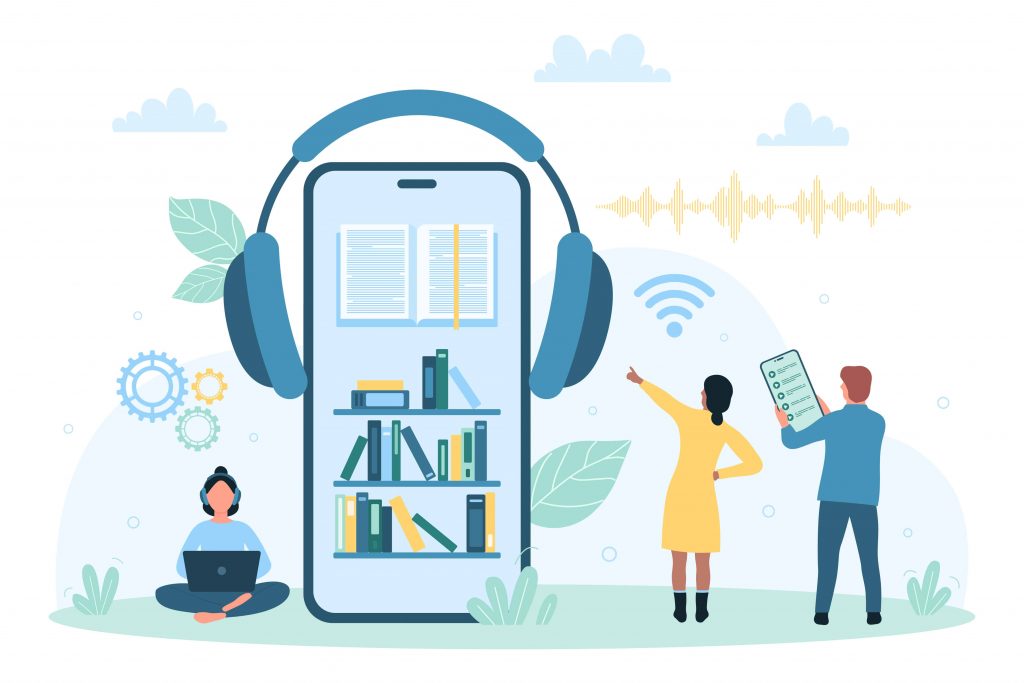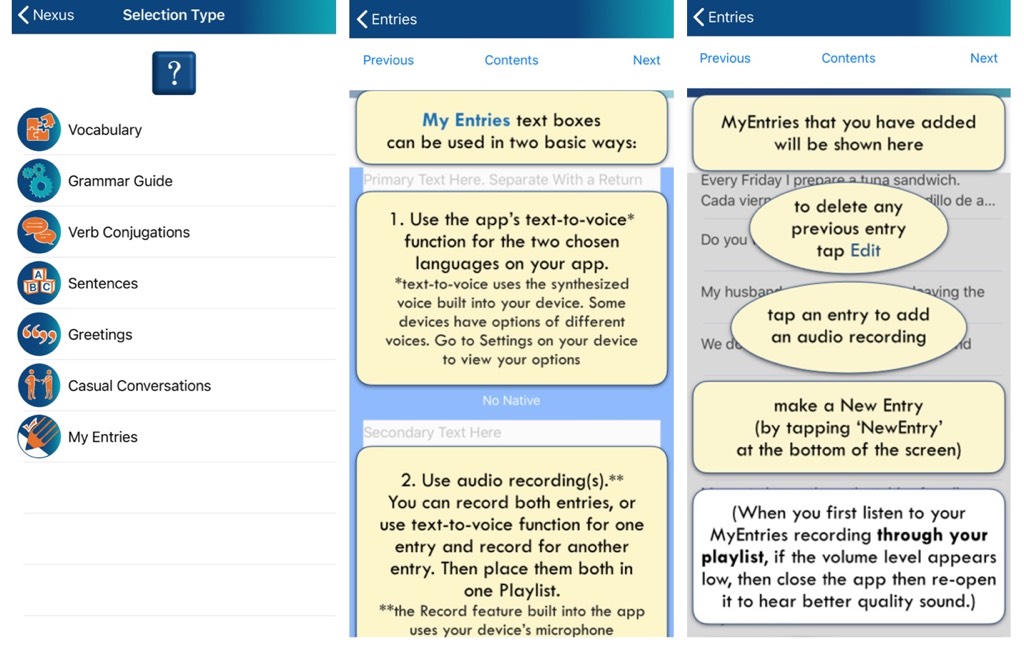Language Learning Through Songs and Poems With Encore!!!
Language learning is one of the most challenging tasks that a student can take on. Learning a new language takes time, effort, and lots of practice to do properly. One of the things that makes learning a language even more challenging is that often the process can be dry and boring. Music and poetry can be a fantastic way to capture the attention of students by giving them something entertaining and engaging to interact with. In this article, we are going to look at how music and poetry can be used with the Encore!!! app to help teach languages to students.

Why Use Music To Learn A Language?
Nearly everyone enjoys listening to music. Try as we might to restrain ourselves, we tend to get caught up in the melody and sing along when a catchy song is playing. Even if we don’t understand all of the words of a song, the feeling that the music conveys requires little translation. Songs have a tendency to stick with us as well. We all have had a song stuck in our head that we just cannot get out, otherwise known as an “ear worm”. Having an “ear worm” that is also a lesson can be beneficial due to having a lesson stuck in your head and repeating itself in your head over and over.
These are all reasons that we often teach children their native language using songs. Music helps them to learn the language along with their culture. Think of your nursery rhymes, school songs, or even the alphabet song for English speakers.
Let’s look at some of the other ways that songs and poetry are ideal additions to language learning lessons.
- Songs can introduce new words into a student’s vocabulary. Often, music and poetry are written using words that are less formal and might not make their way into typical vocabulary lessons. These vocabulary words can form the foundations of new lessons and build essential communication skills
- The syntax of songs and poems is different from the syntax used in prose. A student can learn from the differences in syntax to see how the word order and choices change.
- The words that are used in music and poetry are often more descriptive and are great at creating images in the mind of the reader or listener in just a few words. This more descriptive form of storytelling can help a student to learn to convey their ideas more vividly.
- Most poetry and musical verse are short in form, which makes them great for repetitive consumption by students. They can be played over and over which allows them to be memorized quickly. This rapid memorization can help students build a more robust vocabulary.
- These forms of verse often convey a deep cultural meaning. The words used in poetry and lyrics usually express more ideas than the literal meaning. Music and poetry often uses figurative language which can help students to understand the culture behind the art and how these words are used to convey cultural ideas.
- Developing long term recollection of unrelated words requires the use of the words nearly 100 times. That usually takes a long time to achieve. In contrast, songs are capable of being memorized in as few as a dozen listens. The combination of melody and rhythm help students learn all of the lyrics together, similarly to how English students memorize the alphabet by turning it into a song.
- Music and poems let you add context to the language lessons you have already been learning. By hearing the words and phrases you have been learning via apps or in classes used in a more natural way, you will gain a better understanding of the vocabulary.
- Music can go with you anywhere! It might be hard to study a lesson while driving, on a bus, or going about your day. You can sing a song to yourself nearly anywhere you are though! Combine this with language apps like Encore!!! that can also be used at nearly any time and you have a powerful mix.
The most important reason why we should use songs to learn a new language is also one of the most simple: It’s fun! Music makes language learning entertaining and keeps you focused on wanting to learn more. Next we will look at how to put this to work for both students and teachers.
How Teachers Can Develop A Language Learning Module Based On A Song With Encore!!!
There are several ways that teachers can integrate music into their language classes. Teachers could let students pick songs to study and translate themselves, or they could take the route of developing a module based around a song or series of songs. While the more freeform way might have its uses, a more structured lesson will probably benefit students most.

Developing a module that uses a song to teach language means a teacher will need to prepare a lesson plan for how students can learn the most from each song or poem. The ideal lesson will teach students not just the song itself, but use the lyrics as a way to teach new words and grammar. It will explore the figurative language in the words and then challenge the students to use their imagination to create a new song from the lessons they learned. Just one single song can motivate a student to want to learn more vocabulary and expand their horizons.
Creating A Song Based Language Lesson
- Song Selection – The first and most important step is the choosing of a song or poem. Get both an audio file and text for the lyrics. It can be helpful to find both a track with vocals as well as an instrumental version of the same song. The song should be catchy, fun, and appropriate for the language level of the students while still having challenging vocabulary.
- Vocabulary – Go through the song and prepare a list of vocabulary words from the lyrics. Once you have the vocabulary list you should prepare a short and simple dictionary with definitions for each word.
For all but very young students, make a list of the vocabulary words in a table with the grammatical elements. Identify the nouns, pronouns, verbs, adjectives, adverbs, prepositions, conjunctions, and numbers. - Alternate Vocabulary – Create a list of alternative vocabulary words that are matched with the grammatical elements of the existing vocabulary list. Blue can be matched with Red, Grey, Green etc. Dog could be matched with cat, pig, or specific breeds.
- New Sentences – Prepare a set of new sentences that can be created using this new vocabulary. Show how the different words can be used to create new sentences and change the lyrics of the song. Show how these changes can affect the meaning or leave the meaning untouched.
Putting Lesson To Use With Students
Now that we have a breakdown of the song and its vocabulary, as well as a list of alternate words to help develop new combinations of words and ideas. It is time to take this set of lessons and put it to use with students.
- Play The Song! – The first and most important task is to play the song for the students. Let them get into the rhythm and beat of the song, let the students really enjoy the music so it gets stuck in their heads. Then, get them to listen again and note down how many vocabulary words they already know and recognize. This will let the teacher know the level of the song to the class.
- Recite and Repeat – Read the lyrics of the song in a normal voice to the class. Ask them to identify any words they know again. This will help if the style of singing or accent might have been keeping them from recognizing a word.
- Focus On What They Don’t Know – Using the knowledge of what vocabulary the students recognize, focus the lessons on what words they don’t know already.
- Teach The Vocabulary – Have the students study the vocabulary lists you created for the song.
- Repeat The Music And Translate – Break the song down into pieces and help them memorize the lyrics and have them translate the lyrics back to you.
- Group Creative Project – Have the students break into groups of four or five. Assign each group a word replacement task where they will engage in a creative task by rewriting and singing their own new version of the song. Let them use other resources such as dictionaries and the internet to find new words that will fit into the song too.
By doing this, your students will learn 5 or 6 versions of the song (depending on the number of students in the class), and hundreds more vocabulary words. The outcome of this project will have your student memorize the song by listening to it repeatedly and singing along. They will learn all of the words used in the song and their meaning, as well as the grammatical category the words belong in. Students will also learn alternate words for each vocabulary word and create a new song with alternate lyrics but the same melody.
How Encore!!! Can Be Used For A Song Based Learning Project
The Encore!!! language learning app is uniquely designed for this kind of lesson. Encore!!! has features like the My Entries tool that lets you create your own content. This lets you create lessons with song lyrics and translations and break it down line by line.

You can record the audio and text right into the app, and break it down lyric by lyric. Repeat the lyric in both your language and the target language. The Listen – Speak – Repeat method, otherwise known as L1-L2, means that you will repeat the phrase in each language, and in whatever order you need to. This lets you practice the whole song in order, or focus on specific phrases you need help with.
The same method can also be used to focus on specific vocabulary words and grammatical elements. You can also integrate this with the group project by loading the alternate versions of the songs into the app too.
Conclusion
Learning a language by using songs is a fantastic way to keep students interested and engaged in the lessons. Songs get caught in our heads, connect us to the culture of a language, and let us memorize vocabulary words faster. Using a well crafted lesson plan will have your students learning hundreds of vocabulary words and phrases from a single song.
Encore!!! has tools such as the My Entries feature that lets you create lessons and integrate songs, poems, movie lines, and more into your lessons. By combining Encore!!! with a well designed lesson plan students and solo learners alike can benefit.
How to Use Contents in this folder
